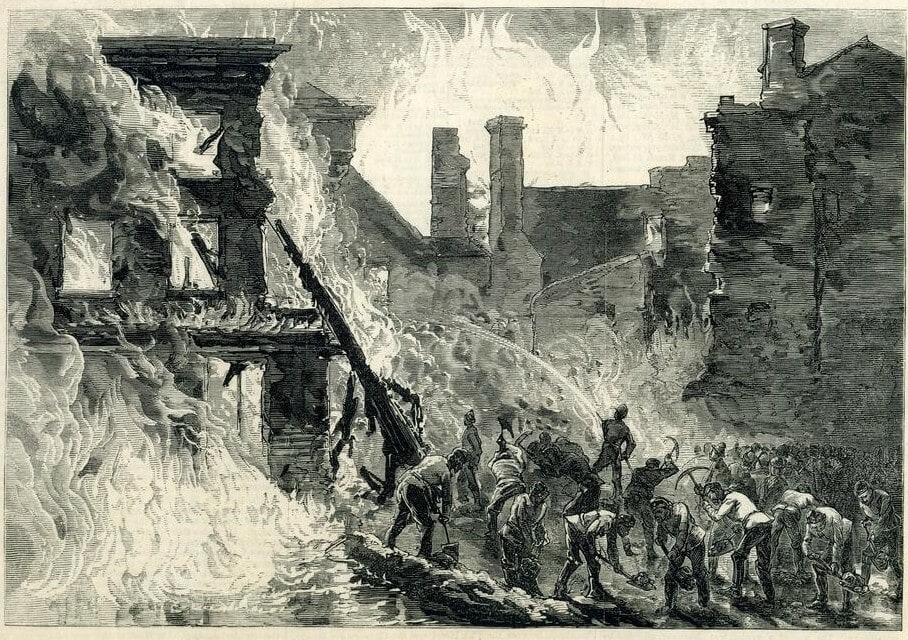Disaster struck Dublin in 1875, when a fire erupted in a liquor warehouse full of hundreds of thousands of gallons of whiskey. Soon, rivers of flaming whiskey were streaming through the city. Dozens were killed and injured – not from the flames, but from drinking the booze flowing through the streets. Below are twenty five things about that disaster and other historic catastrophes.
The Dublin Whiskey Fire Disaster

The Irish love of whiskey (spelled with an “e” – whisky spelled without an e is Scottish), or more like their excessive love of whiskey, is a longstanding stereotype that has served as joke fodder for centuries. However, there was one tragicomic episode in the nineteenth century – more tragic than comic – when that lazy stereotype came to blazing life. It took place on the night of June 18th, 1875, when the streets of Dublin were transformed into rivers of flaming whiskey.
A disaster known as the Great Dublin Whiskey Fire began in a warehouse that stored 5,000 hogsheads with more than 315,000 US gallons of whiskey. The giant barrels began to explode, and before anybody knew it, a river of fiery whiskey raced through Dublin’s streets. Thirteen people perished, and many more were hospitalized. None of the fatalities were caused by the fire. Instead, as seen below, they resulted from alcohol poisoning, as greedy sots rushed to lap up the fiery booze from the streets.

